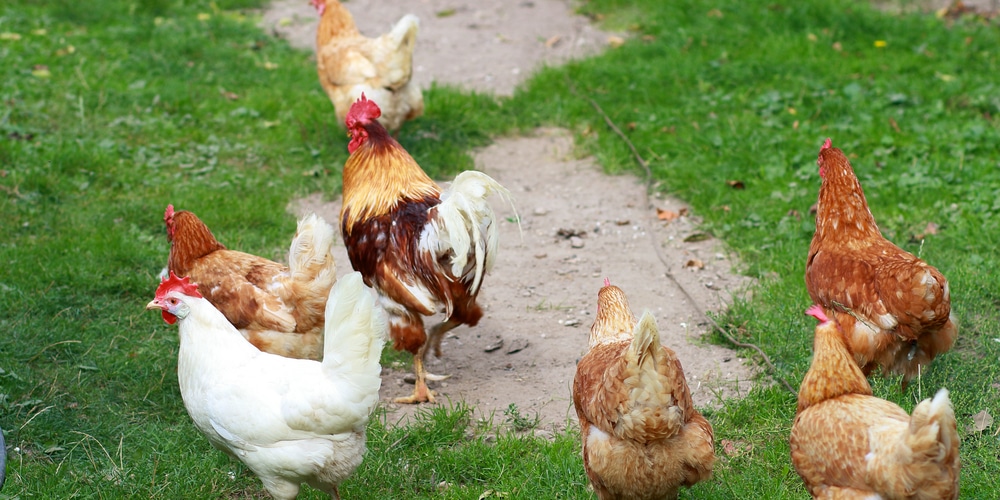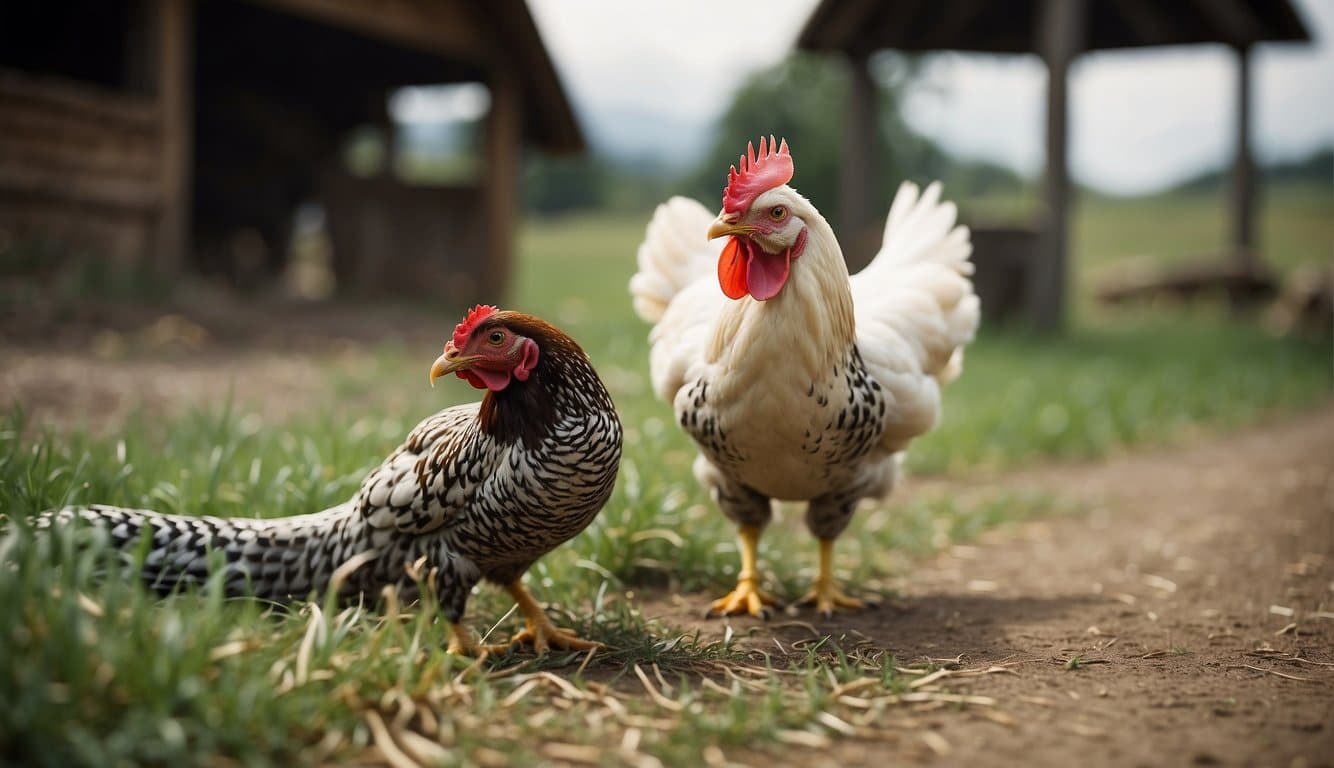| Question | Do Chickens Eat Snakes? |
|---|---|
| Answer | Yes, Occasionally |
| More Info | Chickens, as omnivorous birds, occasionally prey on small snakes. Key points include: Opportunistic Feeders: They consume a wide range of food, including insects, small mammals, and snakes. Defense Mechanism: Chickens may attack snakes to protect their territory and chicks. Snake Size: They typically target smaller, non-venomous snakes. Farmyard Role: In farm settings, chickens can help control pest populations, including snakes. |
Chickens Have a Super Diverse Diet
You might be surprised to learn that your backyard chickens are more adventurous eaters than you might expect.
Their diets go well beyond grains and seeds, embracing a variety of foods that reflect their omnivorous nature.
Omnivorous Nature of Chickens
Chickens are not picky eaters and will consume a wide range of foods.
As omnivores, they have the ability to digest both plant and animal matter, making their dietary preferences quite extensive.
- Insects: A natural source of protein.
- Vegetables: Essential for nutrients.
- Grains: The staple of commercial feeds.
Adding to their diverse palate, they may occasionally partake in an unexpected snack.
Chickens can and sometimes do eat snakes, when the reptiles are small enough to be seen as prey.
It’s an opportunistic behavior that not only provides protein but also helps in pest control around your coop.
Typical Components of a Chicken’s Diet
Your chickens’ diet will commonly consist of several key components that provide the necessary nutrients for their health and well-being.
- Grains and Seeds: These are usually the primary energy source.
- Greens and Fruits: For vitamins and minerals.
- Proteins: Such as worms or small insects, crucial for egg production.
While you provide a balanced feed, your chickens will also forage for extra tidbits around the garden, which might include small snakes, if they stumble upon them.
It’s essential, however, that what they eat is safe and non-venomous to ensure their health is not compromised.
Predatory Behaviors in Chickens
Chickens are not typically seen as predators, but they will indeed hunt and consume a variety of small creatures, exhibiting natural hunting behaviors that may surprise you.
Insect and Small Animal Predation
- Chickens actively forage for a wide variety of insects such as worms, beetles, and caterpillars, which are a vital source of protein.
- They frequently engage in opportunistic hunting of small animals, including mice and lizards, showcasing their less known predatory side.
Chickens’ Response to Snakes
- When encountering snakes, chickens’ reactions can vary.
- Some may avoid the snake, while others, particularly brave or territorial individuals like roosters, might confront or even attack the snake.
- In situations where a chicken decides to engage with a snake, it’s often a smaller one they can manage, effectively reducing the presence of these reptiles around their coop.
- If your chickens are acting aggressively towards snakes, it’s a sign of their inherent predator instincts kicking in.
Chickens and Snake Health
When considering chickens and their interactions with snakes, your primary concerns should revolve around protecting the health of your birds and ensuring their diet remains safe and appropriate.
Potential Health Risks for Chickens
- Poisonous Species: If your chickens ingest venomous snakes, the consequences could be severe, possibly leading to illness or death.
- Diseases and Parasites: Snakes may carry diseases and parasites that can be transferred to your chickens, compromising their health.
Safe Dietary Practices for Poultry
- Regular Monitoring: Keep a vigilant eye on your chickens to quickly spot if they consume anything potentially harmful.
- Preventive Measures: Utilize natural snake repellents, such as garlic and onions, to discourage snakes from entering chicken areas.
- Nutritional Balance: Ensure that your chickens’ diet contains the right balance of nutrients they typically need, which does not include snakes.
Frequently Asked Questions
In this section, you’ll find clear answers to common inquiries regarding chickens and their interactions with snakes.
Are chickens capable of consuming rattlesnakes and other venomous snakes?
Chickens typically avoid large or venomous snakes like rattlesnakes due to the obvious danger they present.
The risk of injury or death from venom prohibits chickens from actively hunting these reptiles.
Is it common for snakes to prey on chicken eggs, and how can one identify such behavior?
Yes, snakes do prey on chicken eggs, and signs of this include:
- Missing eggs without any trace.
- Visible presence of snakes in the coop, particularly near nesting boxes.
Will the presence of chickens deter snakes from entering the area?
Chickens might deter smaller snakes simply by their active foraging and presence; however, they are not a guaranteed deterrent for all snakes, especially those in search of a meal like eggs or chicks.
Do chickens have any inclination to consume dead snakes they encounter?
Chickens may peck at or investigate dead snakes out of curiosity, but they do not typically seek out dead animals as a food source.
In terms of predation, do roosters provide protection to hens against snakes?
Roosters have protective instincts and may confront intruders, including snakes, to defend their flock.
They can serve as an alert system and can sometimes deter snakes through aggressive behavior.
Can the scent of chickens attract snakes to the vicinity?
The scent of chickens or their feed can attract rodents, which in turn may lure snakes in search of food.
Good coop hygiene and rodent control measures are important to minimize this risk.
Last update on 2025-06-06 / Affiliate links / Images from Amazon Product Advertising API




